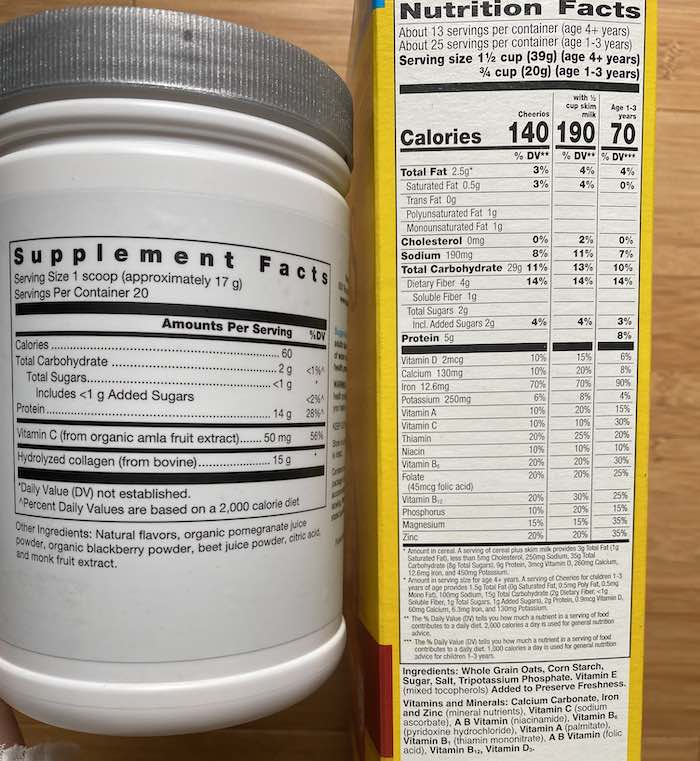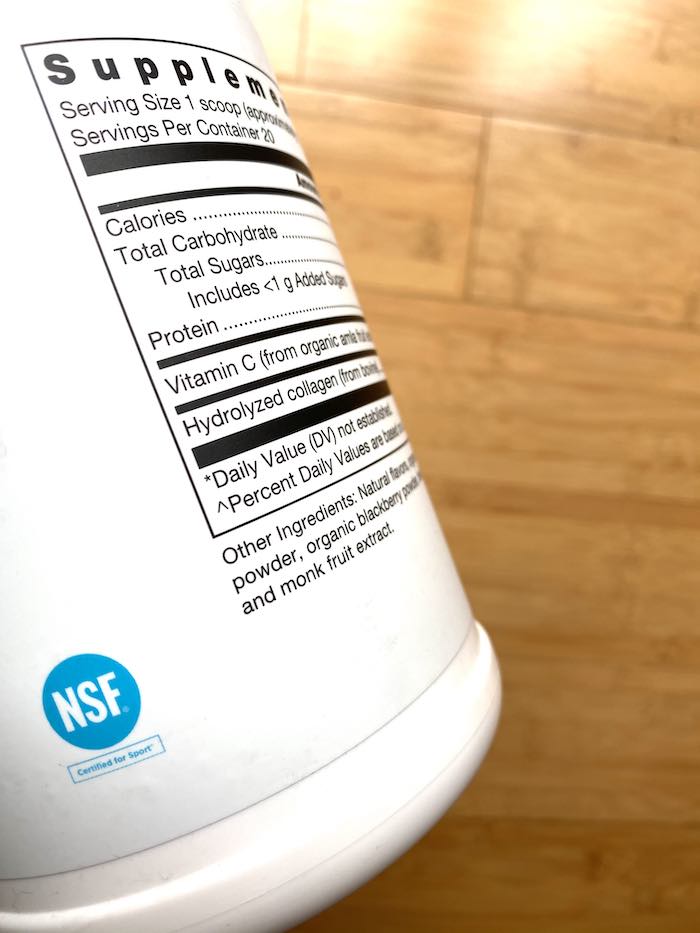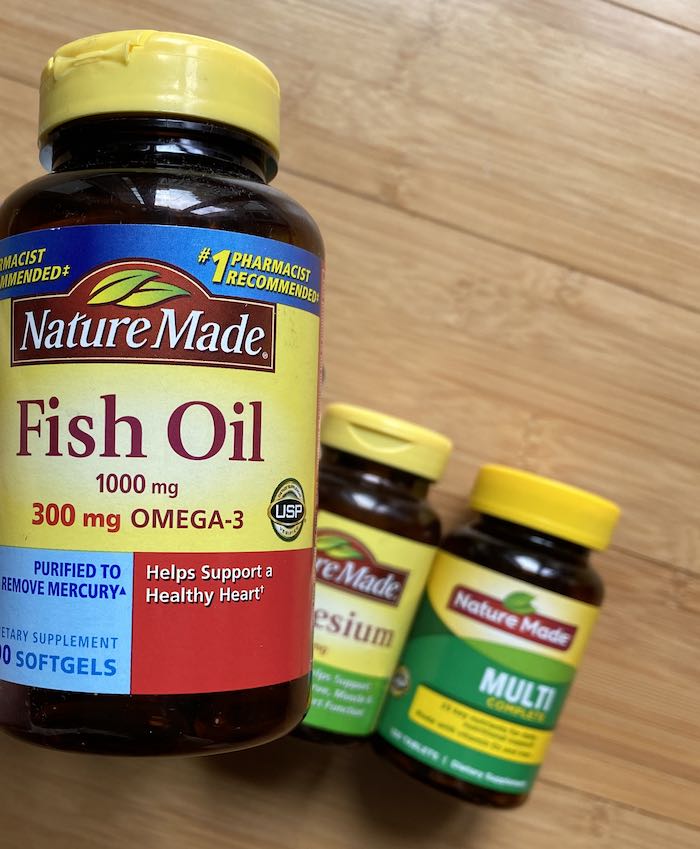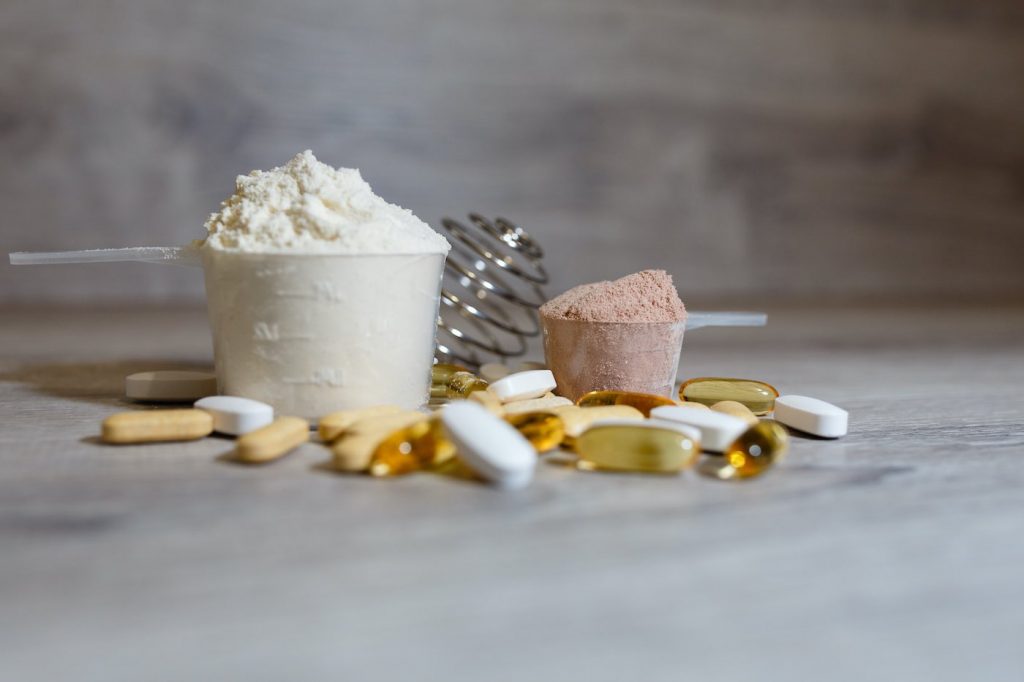Choosing the right supplements can be confusing and difficult to understand. Use this article to navigate the clutter and learn the first steps to take.
If you’ve spent any time searching on the internet, you likely know exactly what I’m talking about when I say it can be confusing to choose the right supplement. The supplement industry is a multibillion-dollar industry (over 120 billion for reference), so it’s safe to say they use many different messaging tactics to entice you to buy their products. And they do it well.
In many cases, supplements are necessary and can be extremely valuable for health and exercise performance. However, some supplements may be draining your wallet more than they are providing you any benefit. In this article, I’ll break down some key things to look for in a supplement, and how to go about doing preliminary research.
While it is best to meet with a Registered Dietitian Nutritionist for individual recommendations, this tool can get you started. You should always understand what you’re putting into your body and how it can affect you!
Disclaimer: If you are a collegiate or high school athlete, there are many factors to consider before taking a supplement. Make an appointment with your school’s sports dietitian or a sports dietitian in your area to get a professional opinion on the brand, reason for its use, and the ingredients to know if it’s safe and appropriate for you to take. If you are a minor, are pregnant, breastfeeding, taking other medications, or have other health conditions, it is recommended to first speak with your health team.
What is a dietary supplement?
In 1994, the FDA defined a dietary supplement in the Dietary Supplement Health and Education Act (DSHEA):
“A dietary supplement is a product taken by mouth that contains a “dietary ingredient” intended to supplement the diet. The “dietary ingredients” in these products may include: vitamins, minerals, herbs or other botanicals, amino acids, and substances such as enzymes, organ tissues, glandulars, and metabolites.”
Are vitamins, minerals, and other supplements regulated by the FDA?
The FDA does not test or approve any supplement before it is put on store shelves (or your online shopping cart). Scary right? While there are ingredients that are classified as Generally Recognized as Safe (GRAS) that the supplement companies are supposed to stick to, many times, there are fillers or other unsafe ingredients used. Unfortunately, it isn’t until someone reports a negative side effect that these issues are usually brought to light.
The responsibility ultimately lies on the manufacturer to have a safe and legal product. As you can guess, many manufacturers follow the rules, but many either get too lenient with their protocols or decide to bend the rules knowing that they have a chance of getting away with it. This puts more responsibility on you to do your research.
Nutrition supplements for athletes
Athletes have to be even more cautious when choosing a supplement. Many manufacturers may be processing other products, and those products may be on banned substances lists for collegiate and professional athletes. Even if you think you’re consuming a safe and harmless supplement, this is why third party testers like NSF Certified for Sport and Informed Sport are both crucial certifications to look for (more on this below). It can be the difference between playing your sport and being disqualified or suspended from all activities.
For more specific information on supplements and athletic performance, the Office of Dietary Supplements has a supplement fact sheet specifically for exercise and performance and breaks down key supplements.
6 Key Steps in Choosing the Right Supplements
There are 6 key steps I recommend that you in order to choose the right supplements:
- Don’t rely on ads or influencers! Assess your eating habits.
- Consider the different types of supplements.
- Evaluate the label – supplement facts vs nutrition facts.
- Choose safe supplements that go through third-party supplement testing.
- Consider how supplements will interact with your prescriptions.
- Ask yourself these final questions before choosing a supplement.
1. Don’t rely on ads or influencers! Assess your eating habits.
It’s easy to buy something after seeing an ad for it online or seeing an influencer recommend it on Instagram or Facebook. But if you take a step back, these people are often the furthest thing from nutrition professionals and may be “selling” you something that isn’t right for you – or even worse, actually harmful. Instead of purchasing the supplement on a whim, do more digging about the brand, the team of professionals working there, and the product itself.
Many people say they rely on supplements as a type of “insurance policy” to make sure they are getting all of their required nutrients. You’ll likely hear something along these lines from influencers too. However, if you eat a generally healthy array of foods – think around 80-90% healthy, 10-20% “fun food” – you will likely be meeting your needs. At a much lower cost too. If you still think a supplement will be helpful, first consider the other steps in this article.
Remember, supplements can’t outdo a poor diet! Work on building a colorful plate with carbohydrates, lean proteins, and healthy fats to fuel your body! Read more about these components in my athlete’s plate article.
2. Consider the different types of supplements.
There are many different types of supplements, including ergogenic aids, herbal supplements, and vitamin and minerals. They come in different varieties including powders, tablets/capsules, liquids, bars, gummies, and more. This is one more factor to account for when choosing the right supplement. Is there research showing one type is safer or more effective than the other?
For context – ergogenic aids are supplements that are proposed to create a performance benefit. Herbal supplements include one or more herbs in concentrated amounts. These are also sometimes referred to as botanicals.
3. Evaluate the label – supplement facts vs nutrition facts.
Look at the label – does it say Supplement Facts or Nutrition Facts? There are several differences. For example, there are different requirements for servings sizes and the nutrients that are listed on the label of each.
Here is a side by side comparison for reference. You may see some protein powders and sports bars that have nutrition facts labels – these products are regulated and go through a completely different process.

This is an important step in evaluating a supplement, as it is also where you’ll find the ingredients and their amounts. No matter what, make it a goal to understand what each of the ingredients are (and be able to pronounce them!).
Supplement label – serving size
How many pills, scoops, etc. equals one serving? If you have a full serving, how much of your % Daily Value (%DV) is it? Many supplements provide doses far over the total DV and can have health consequences (even with something like iron!).
Remember that you will already be getting many vitamins and minerals from your diet, so look up food sources of certain nutrients before opting for a supplement. Plus, nutrients from the foods we eat are better absorbed than nutrients from supplements due to the way the nutrients in the foods interact with one another.
Proprietary blend meaning on supplement label
Does the supplement label include a proprietary blend? Many supplements include these, but the amounts of each of the ingredients in the blend are not provided.
For example, you may see that a supplement has a propriety blend of amino acids, but it doesn’t tell you how much of each of those amino acids are in the serving you’re taking. If you’re trying to target a certain amount of leucine after your exercise, this may make things difficult.
Another example – you have a product with a proprietary blend with caffeine as one of the ingredients. Caffeine impacts everyone differently, and in certain amounts, is actually considered a banned substance by the NCAA. You should know how many milligrams of caffeine you’re consuming.
Rule of thumb: avoid products with proprietary blends.
4. Choose safe supplements that go through third-party supplement testing.
How do you know if you can trust a supplement brand? There are many companies and organizations that do third party testing, and you should be looking for these anytime you’re buying a supplement.
Many collegiate and professional athletes have lost eligibility from a positive drug test due to the supplements they were taking, thinking that they were choosing a completely harmless supplement. Supplements can contain banned substances without the athlete knowing (either they don’t know that one of the ingredients is banned, or it is tainted with an ingredient it wasn’t supposed to have).
The gold standard for competitive athletes is NSF Certified for Sport. Informed Sport is another reputable testing certification. If you aren’t a competitive athlete, the banned substance testing may not seem as important to you, but I still recommend looking for Informed Choice (different than Informed Sport), USP Verified, the general NSF mark, or an approved product on ConsumerLab.
It’s also worth noting that even if you aren’t a competitive athlete, choosing a supplement that has been tested by these organizations can help ensure that the supplement contains what it says on the label (no more, no less, no additional ingredients).
Here’s a breakdown of some of the top seals I recommend, and the logos to look for.

NSF Certified for Sport
NSF Certified for Sport tests every single product to make sure it has exactly what it says on the label. They also make sure it is free of over 270 athletic banned substances. You can search all NSF Certified Products here. They also have an app for easy access on your phone. Though, just because something is on this list, doesn’t mean it’s right for you.

Informed Sport
Informed Sport is another high-quality third-party certifier. They also test for hundreds of banned substances and test products before they hit the shelves.
They recently came out with a supplement safety guide.
USP
When you see this mark you will know:
- It actually contains the ingredients listed on the label, in the amounts it lists.
- It does not contain unsafe levels of specific contaminants.
- The supplement will actually break down and release into the body within a specified amount of time.
- Is created in a GMP-certified facility and follows proper sanitary protocols.
There are also many brands that have been USP verified. Use this link to browse USP Verified Quality Supplements.

ConsumerLab Third-Party Testing
One of my favorite tools that also provides third-party testing is ConsumerLab. It is a membership website (at a very low annual cost) that classifies supplements by the type/ingredient and gives you a whole report on that supplement category.
You’ll see specific branded products that were tested, whether or not the product was approved, and more. You’ll also get an overview with elements such as all of the recent research of that ingredient/supplement type, populations that may benefit the most, and who should avoid using the supplement.
5. Consider how supplements will interact with your prescriptions.
If you are on any prescription drugs, you should always make sure that there aren’t any contraindications with the supplement you want to take. It’s best to speak with your health team to make sure the supplement won’t interact with your medicine.
6. Ask yourself these final questions before choosing a supplement.
There are many different questions you should ask yourself about the supplement you’re interested in purchasing in order to choose the right one. Here are some examples:
- Why do I want to take this supplement?
- What are the ingredients?
- Is it safe for me?
- Can I get the same nutrients by eating whole foods instead?
- What is it supposed to do? Is there ample research to back it up (not just one or two small studies, but several randomized controlled trials and review papers)?
- What are the recommended doses?
- Does the form I take make a difference (ie. liquid vs. powder vs. gummy vs. capsule)?
- Is there an upper limit (high doses of certain supplements can cause negative side effects) for any of these ingredients?
If you have trouble finding a clear answer to any of the above questions, it’s safest to find a Registered Dietitian who can properly advise whether or not the supplement is right for you.
Stay tuned for another post on specific performance supplement categories – ones I have recommended to athletes, the research behind them, and how they can help you reach your exercise goals.


5 Responses
Claire Wood’s article on choosing the right supplements is a must-read for anyone navigating the supplement maze. She emphasizes the importance of assessing your diet first and highlights the need for third-party testing to ensure safety. A timely reminder that not all that glitters is gold in the supplement world!
This is a great breakdown of how to choose the right supplements! The supplement industry can be overwhelming, and it’s refreshing to see an article that prioritizes research, safety, and third-party testing. The reminder to assess eating habits first before relying on supplements is so important.
Thanks Ethan!
Love the thoughts on choosing the most appropriate supplements and HOW to choose them. I can see how the number of options can put people into analysis paralysis.
I’m glad you enjoyed the article, Steven! It can definitely be an overwhelming space and having the right tools to make a decision can make a big difference.